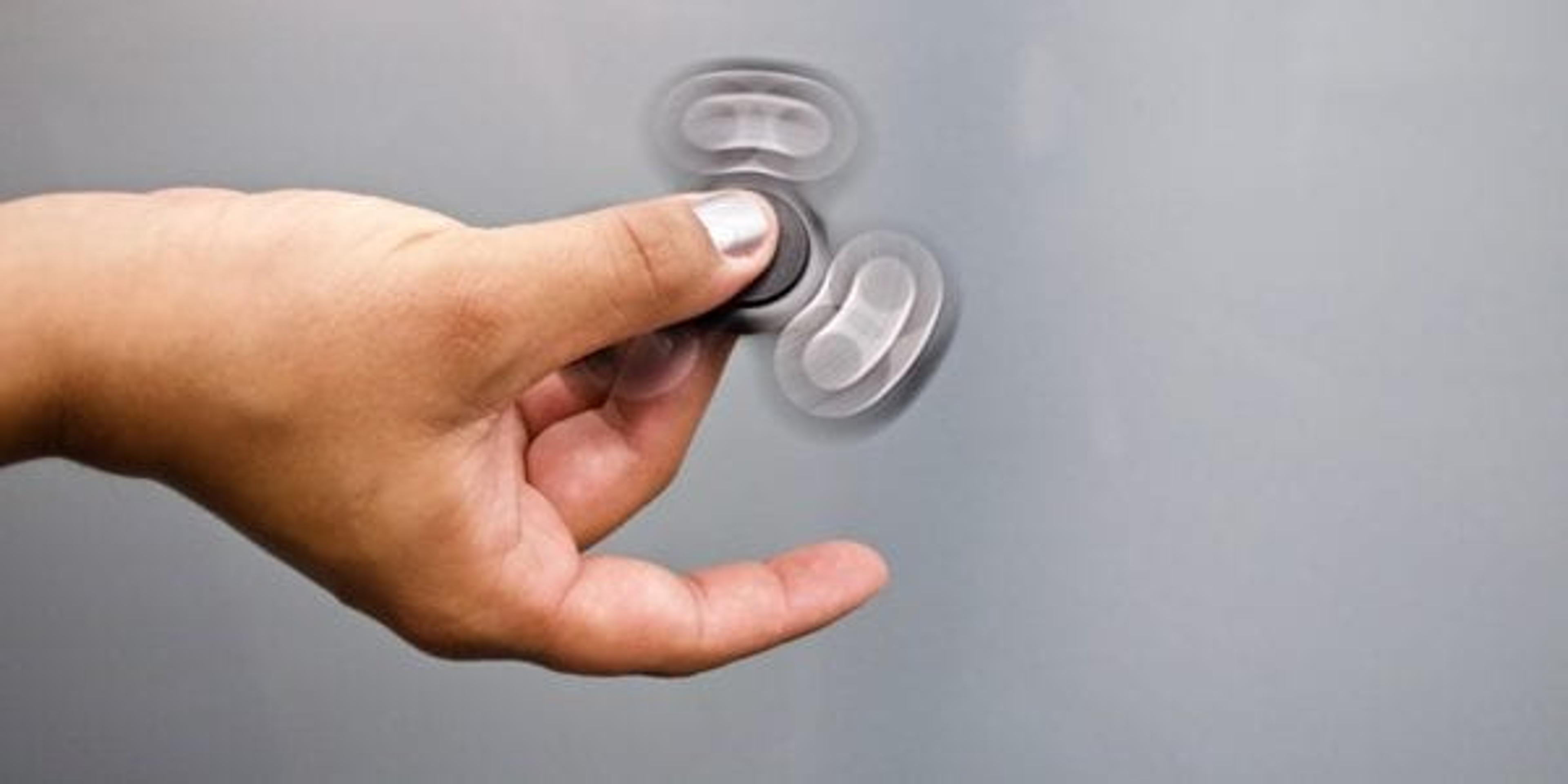Fidget Spinners: The Facts Behind the Fad
Guest Blogger
| 4 min read

Many parents and teachers already know that fidget spinners are the hottest trend in kids’ toys. Fidget spinners are definitely a fad, but there are some valid reasons why they are so popular right now.
With increased demands for children to sit at a desk and focus on dyadic learning (as opposed to hands-on, sensory based-learning), we are creating more and more of a need for sensory regulation. By decreasing gym time, recess, art and music which are all ways for sensory regulation, we are increasing the need for alternative methods such as fidget toys.
In addition, society’s increased screen time has wired us to be constantly stimulated – which in turn causes us to feel “bored” or tired when we are under-stimulated, making it difficult to focus and learn.
Why do we fidget?
Fidgeting is one of the many ways we help our central nervous system regulate. We fidget to either increase or decrease stimulation of our nervous system. What might be stimulating for one person at a given moment might be calming to another in that given moment. Different sensory activities have calming or activating effects at different times for different people.
For example, tapping one’s fingers or feet might help one person become more activated and able to focus, another person might calm down and be able to be focused, another person be activated and decreased ability to focus, and yet another person might be calmed down too much and unable to focus.
Why does this happen? Sensory integration is the way our sensory system (such as touch, taste, smell, etc.) function independently and together. If there is a problem with one system, or the way the systems work together, it affects how the person interacts with people and the environment, as well as his her ability to learn. Dysfunction is very common in many common diagnoses and issues such as ADHD, autism, anxiety and learning disorders.
Are They Effective?
Whether or not fidget spinners are beneficial depends on what affect it has on what child at a certain time and what the desired goal is. Some kids may need sensory play to activate their brain to effectively pay attention and learn, but for others it may be distracting.
Fidget spinners can be an appropriate outlet for some energy and a way to receive visual, tactile, and, in some cases, auditory stimulation which definitely helps certain kids.
Kids are still learning how to regulate sensory input and emotions, which is why adults have to help them by being good models and teaching kids appropriate ways to regulate.
The fidget spinner is no different than many issues parents and teachers face, as adults we need to set appropriate boundaries and limits on when and how to use them.
Fidget Spinner Alternatives
Aside from fidget spinners, other ways to assist in sensory regulation include:
- Increase or decrease in lighting
- Music
- Exercise
- Chewing gum, hard candy, straws, or even chew-able jewelry
- Alternative seating (such as large exercise balls or soft chairs)
- Essential oils
- Weighted blankets, pillows, vests or animals
- Sensory stress balls such as this one
- Sticking a velcro tab inside a child’s desk or clothing as tactile stimulation
Fidget spinners definitely aren’t the end answer to the problem, but they can help some and definitely can help adults begin to understand the need for sensory play and integration.
If you think your child may have a sensory integration issue, talk with your pediatrician about your concerns or schedule an evaluation with a pediatric occupational therapist for a sensory evaluation.
About the author: Laura Hutchison, PsyD, LP, RPT/S, a Blue Cross Blue Shield of Michigan provider, has been a practicing therapist since 1999. She obtained her Doctorate in Psychology (PsyD) in 2005 from The Center of Humanistic Studies (now called the Michigan School for Professional Psychology). She currently works part-time in her private practice in Farmington Hills, Mich., writes her own blog, PlayDrMom, and is a full-time mom of two young children.
Photo credit: Sando Elia, A Healthier Michigan





